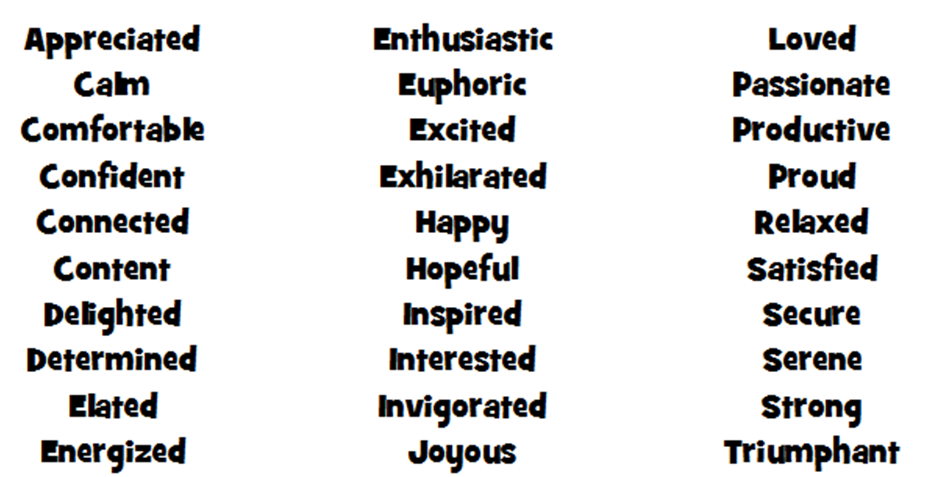Happiness ValuesEach of us is different in which aspects of happiness we value. These values affect how we live our lives and, as a result, they affect our emotional experiences. So what are your happiness values?
*This page may include affiliate links; that means I earn from qualifying purchases of products.
What Are Happiness Values?Happiness is thought to be made up of positive emotions as well as a sense of purpose or meaning. But the extent to which different aspects of happiness matter to us can vary quite a bit. Maybe you deeply enjoy adventure and newness whereas I deeply enjoy comfort and familiarity. This would mean we value different aspects of happiness.
When you know what aspects of happiness (or emotions) you value, you can better prioritize the experiences that create the positive emotions you desire. That's why getting clear on your happiness values (or emotional values) is a key step on the pathway to happiness. Activity: What Are Your Happiness Values?During this activity, you will get a better understanding of your happiness values. Here we'll be focusing on positive emotions.
From the selection below, please select the 3 positive emotions that you MOST value. You may value many more than 3 positive emotions, but please just pick the top 3 for this activity. Write down your answers below or on a sheet of paper. Please select the 3 positive emotions that you MOST value (i.e., you want to feel).
What did people say about their happiness values?Thank you to everyone who submitted your responses to this activity! We can now share some common themes that emerged among our community.
In the Berkeley Well-Being Institute community, a few themes emerged helping us to better understand people's happiness values. Among this community, many people could be classified into 1 of 3 different types: 1. The Energy Seeker: Energy seekers value emotions like passion, excitement, enthusiasm, confidence, and feeling strong, triumphant, exhilarated, or inspired.
2. The Connection Seeker: Connection seekers value love, connection, passion, appreciation, being interested, or being secure.
3. The Goal Seeker: Goal seekers value being productive, inspired, appreciated, satisfied, and sometimes secure, confident, or proud.
Note that not everyone was classified as one of these types. Other respondents valued a combination of these things. If you just answered the questions above, ask yourself: Do I fit in one of these categories or am I a mixture? Other Interesting FindingsIn addition to the value types described above, there were a few other interesting findings.
|
Terms, Privacy & Affiliate Disclosure | Contact | FAQs
* The Berkeley Well-Being Institute. LLC is not affiliated with UC Berkeley.
Copyright © 2024, The Berkeley Well-Being Institute, LLC
* The Berkeley Well-Being Institute. LLC is not affiliated with UC Berkeley.
Copyright © 2024, The Berkeley Well-Being Institute, LLC



